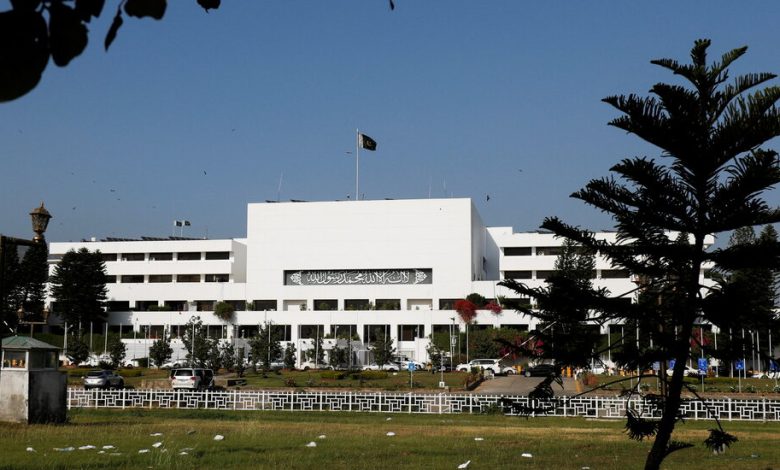Pakistan Strengthens Already Harsh Laws Against Blasphemy

ISLAMABAD, Pakistan — Pakistan’s blasphemy laws, which can already mean death for those deemed to have insulted Islam or the Prophet Muhammad, can now also be used to punish anyone convicted of insulting people who were connected to him.
The move this week by Parliament to further strengthen the nation’s strict blasphemy laws, which are often used to settle personal scores or persecute minorities, has raised concerns among rights activists about the prospect of an increase in such persecution, particularly of religious minorities, including Christians.
As Pakistani society has turned more conservative and religious in the past several decades, religion and display of religiosity in public life have become ever more pronounced.
Those convicted of insulting the Prophet Muhammad’s wives, companions or close relatives will now face 10 years in prison, a sentence that can be extended to life, along with a fine of 1 million rupees, roughly $4,500. It also makes the charge of blasphemy an offense for which bail is not possible.
“The punishment for disrespecting these sacred personalities was almost nill earlier,” said Abdul Akbar Chitrali, a lawmaker belonging to a religious political party and author of the bill.
The deputy speaker, Zahid Akram Durrani, called the legislation “historic” as he congratulated the lawmakers for carrying out what many saw as their religious duty.
Rights activists said the latest development left them further alarmed.
“The new legislation is very worrying,” said Saroop Ijaz, the senior counsel for Human Rights Watch in Asia. “Pakistan’s existing blasphemy laws have enabled and encouraged legal discrimination and persecution in the name of religion for decades.”
Those accused of blasphemy against Islam risk becoming targets of mob justice, fatally tortured or shot by angry mobs before legal proceedings can play out.
In many cases, the accusations have arisen out of personal enmities or feuds over land. Not infrequently, the majority Muslim population has clashed with the minority Christian population.
There is also sometimes a political dimension.
Former Prime Minister Imran Khan survived an assassination attempt in November at a political rally. The accused attacker, as well as some officials in the current government, have characterized the shooting as religiously motivated.
Fawad Chaudhry, a former federal minister and a senior leader of Mr. Khan’s political party, said the government of the current prime minister, Shehbaz Sharif, had run a campaign on state-run television last year claiming that Mr. Khan had committed blasphemy during his political rallies — an accusation that Mr. Khan and his party deny.
Mr. Khan, who was ousted as prime minister after a no-confidence vote last April but has been trying to stage a comeback, has asserted that the assassination attempt against him was planned by his opponents, and that religion was only a pretext.
Mr. Chaudhry described blasphemy accusations against political opponents as a dangerous trend, and said the new legislation only created more opportunities for such misuse.
Taking a stand on the issue can also be dangerous, as the assassination of two senior politicians more than a decade ago made clear. In 2011, Salmaan Taseer, the governor of Punjab Province, was fatally shot by one of his own bodyguards. Mr. Taseer had been an outspoken opponent of the blasphemy laws and had campaigned for the release of Asia Bibi, a Christian convicted of insulting the Prophet Muhammad. Shahbaz Bhatti, a federal minister and a Christian who had also opposed the death sentence imposed on Ms. Bibi, was fatally shot the same year.
Ms. Bibi, who left Pakistan in 2019 after her conviction was overturned, continues to receive death threats.
The Human Rights Commission of Pakistan, an independent rights group, said on Friday that it was deeply concerned over the latest legislation.
“Given Pakistan’s troubled record of the misuse of such laws, these amendments are likely to be weaponized disproportionately against religious minorities and sects, resulting in false charges, harassment, and persecution,” the group said in a statement.
“Moreover,” it said, “increasing the penalty for alleged blasphemy will aggravate misuse of the law to settle personal vendettas, as is often the case with blasphemy allegations.”